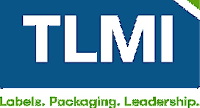TLMI Reviews PROP 65 Changes
- Published: May 29, 2018
MLFORD, OH | The Tag and Label Manufacturers Institute (TLMI) has issued this backgrounder on California’s PROP 65 and current issues surrounding it. PROP 65 has been in place since 1986, and is overseen by the California EPA. It requires that warnings be provided to consumers for nearly 1,000 chemicals where exposure is present. The list of chemicals includes those known to cause cancer, or birth defects and other reproductive harm. 
PROP 65 regulations impact those goods sold into California to business with ten or more employees. While PROP 65 regulations do not ban any chemicals, "clear and reasonable warnings" must be provided. Among the chemicals listed for warning requirements is Bisphenol-A (BPA). BPA can be found in thermal receipts, or as a component of food and beverage packaging, as well as in impacted labels for medicines and other pharmaceutical drugs. Adopted in 2016, new warnings for covered chemicals become effective on August 30, 2018. These revised "safe harbor" warnings are for consumer products and environmental and occupational exposures.
TLMI says most consumer products goods (CPGs) companies will likely not print the PROP 65 warnings on existing labels (even though that is an option). The majority will update safe harbor warnings and provide businesses that sell their products information required to comply. For those choosing to provide on-package label warnings, the following metrics must be adhered to:
- Type size no smaller than the largest type size used for other consumer information on the product. No smaller than 6-point type.
- “WARNING" in bold caps
- Picture of an exclamation point in a triangle filled in yellow. If yellow is not a color elsewhere, "black and white" is fine.
- Symbol placed to the left of the text of the warning, in a size no smaller than the height of the word "WARNING"
For companies choosing not to use on-package labeling, there must be a product-specific warning provided on posted sign, shelf tag, or shelf sign at each point of display. It may also be provided via any electronic device or process that automatically provides the warning to the purchaser, prior to or during purchase.
Just because a chemical is listed within PROP 65, a warning requirement is not automatically triggered. The threshold question for warning consumers is related to whether a person is exposed to a listed chemical above specified levels.
A warning must be given for listed chemicals unless the exposure is low enough to pose no significant risk of cancer or is significantly below levels observed to cause birth defects or other reproductive harm. TLMI recommends member companies review the list for chemicals they or their customers may utilize in processes or products. Covered chemicals will have thresholds listed for exposure level limits.
Who's responsible for providing the warning? The manufacturer or company importing the product must provide the warning to the retailer (brick and mortar outlet). The written notice to the retailer must state that a PROP 65 warning is required and include the name, description, or identifying information for the product, as well as necessary warning materials.
Just as important, says TLMI, the brick and mortar outlet must also provide to the manufacturer or other entity importing covered products notification that they have received the PROP 65 warning and all necessary safe harbor materials.
The written statement must include the following warnings for covered products:
For Carcinogens:
WARNING: This product can expose you to [chemical], which is known to the State of California to cause cancer. Click here for more information.
For Reproductive Toxins:
WARNING: This product can expose you to [chemical], which is known to the State of California to cause birth defects or other reproductive harm (For more information click here.
TLMI has adopted no formal position on PROP 65 requirements. The purpose of this backgrounder is to inform members of forthcoming PROP 65 regulations so they may work with—and educate—their customers to implement necessary changes prior to the August compliance deadline.
The Agricultural Marketing Service (AMS) arm of the USDA has announced an informational webinar on the Proposed National Bioengineered (BE) Food Disclosure and Labeling Standard. The pre-recorded webinar will provide an overview of provisions and supplier impacts of the proposed standard. The webinar can be viewed anytime on the AMS website beginning June 1.
TLMI also reports that CalRecycle has abruptly placed on hold its Packaging Reform effort, which would have potentially recommended to the legislature a bevy of recycling related programs to enact (EPR, minimum content, advanced disposal fees, mandated recycling by businesses, expanded bottle bill), among the options. The recommendations were scheduled to be issued in April.
CalRecycle staff believes that China's National Sword policy, which places strict and often unattainable recycling contamination standards for imported recyclables, prevents industry from complying with recycling-related recommendations or future legislative mandates.
Shortly after that announcement, CalRecycle executive director Scott Smithline issued a letter outlining ongoing export market challenges for recyclables and providing guidance to municipalities on storage of recyclables. He did not make changes to current recycling regulations, but he indicated that enforcement staff will take into consideration export-related market challenges, with respect to the 50% per capita diversion requirement. California Assembly Bill 3178 echoes many of Director Smithline's concerns and would provide statutory protection for communities unable to meet diversion rates under certain circumstances.
These efforts also appear to have stalled CA Senate Bill 168, which put forth requirements that the legislature report back on how an EPR framework for packaging would work for the state.
The Chinese government has provided no indication that contamination standards will be relaxed or rescinded later this year. TLMI will continue to follow these developments closely.
On May 11 EPA administrator Scott Pruitt issued a memo requiring the EPA to review the greenhouse gas criteria and Clean Air Act requirements as part of the National Ambient Air Quality Standards (NAAQS). Pruitt has requested that the economic impacts and benefits of the NAAQS be considered in the agency's review. Just prior to that memo, the EPA issued the list of US counties in non-attainment (above the 70 parts per billion) standard.
Once the review has been completed, businesses and facilities in these counties may encounter future requirements for permitting, energy, and emissions related aspect of their operations. TLMI will continue to monitor this important regulation and its impact on member and customer facilities.













